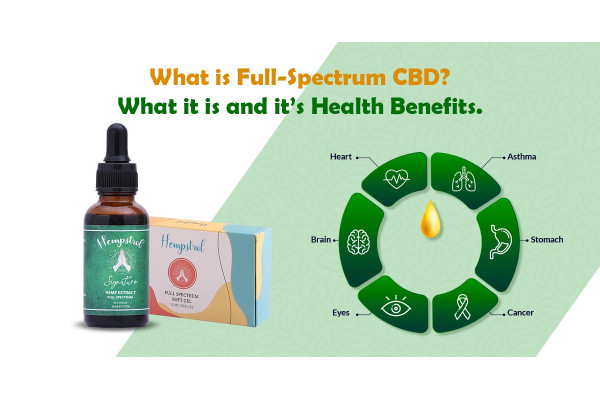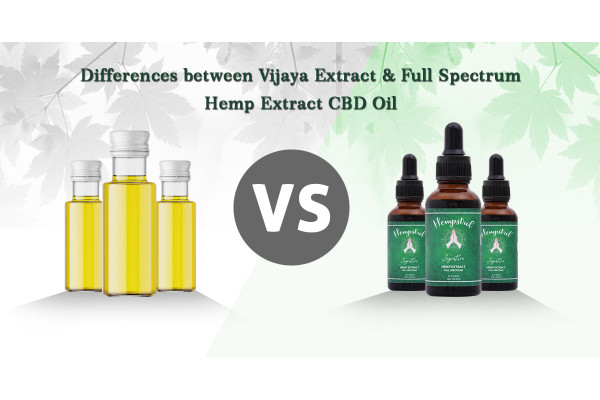Can CBD really help you quit smoking?
Smoking cigarettes-It is one of the preventable causes of death, and yet it is one of the most difficult habits to break.
Cannabidiol, sometimes known as CBD, is the second most common cannabinoid in the cannabis plant. Despite being from the cannabis plant, CBD doesn't make you feel intoxicated. In various studies, CBD has demonstrated its potential as a wellness supplement for various mental and physical health conditions. Few research and studies have cropped up that claim that CBD can help with a variety of health issues such as lowering anxiety, reducing pain and improving your sleep. Therefore, it may come as no surprise that CBD may help ease some of the challenges of quitting tobacco. But the real question is still there, does it aid in giving up smoking? Can it possibly reduce the unpleasant withdrawal symptoms brought on by quitting smoking?
Let's dispel any doubts about whether CBD can assist you in quitting smoking permanently or not.
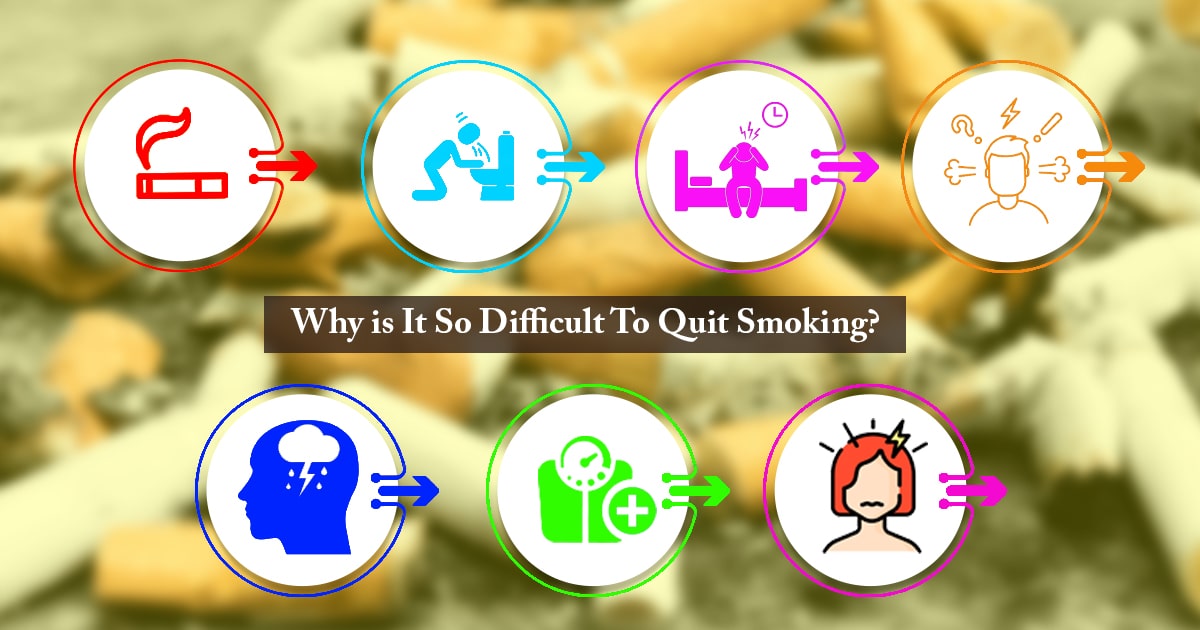
Why is It So Difficult To Quit Smoking?
Intense need for nicotine
Nausea
Insomnia
Nervousness and irritation
Depression
Gaining weight
Headaches
Within the first 24 hours after your last cigarette, withdrawal symptoms start to appear. By the third day, the symptoms usually reach their climax and progressively subside. Although withdrawal is temporary, it can linger for up to 3–4 weeks and be quite painful.
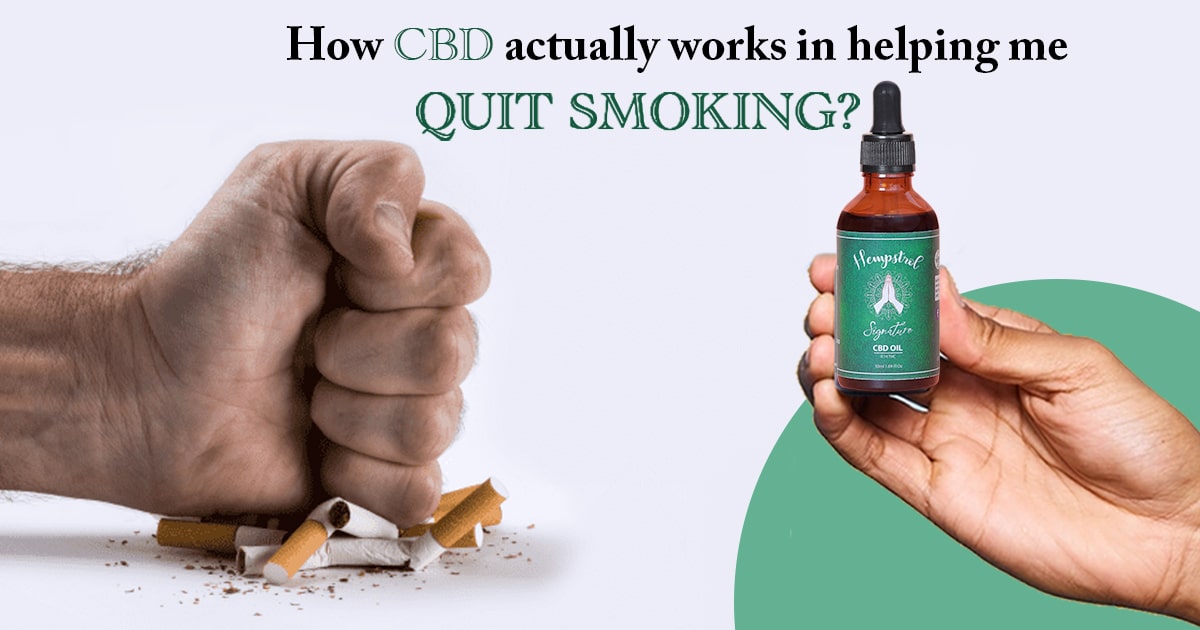
How CBD actually works in helping me quit smoking?
The endocannabinoid system needs to be briefly discussed before we discuss how CBD can aid with drug addiction. This system is crucial for controlling our body's functions and preserving homeostasis. The rewarding effects of addictive drugs, according to researchers, are controlled by the ECS.
It is believed that CBD products produce varying effects through interacting with your ECS. One of them is assisting in reducing drug addiction. In other words, CBD can change how your body perceives certain addictive medications, so they don't seem as rewarding. In a way, it helps in reducing the grip of the addictive drugs on you.
Tobacco smoke includes more than 7,000 chemical compounds, of which at least 250 are known to be detrimental to health, and at least 69 are known to cause cancer, according to research released in 2014 by the World Health Organization (WHO). Shortness of breath, asthma, respiratory infections, lung, stomach, pancreas, kidney, ureter, colon, cervix, and bladder cancer, coronary heart disease, heart attacks, stroke, chronic obstructive pulmonary disease, osteoporosis, blindness, cataracts, periodontitis, aortic aneurysm, atherosclerosis, and osteoporosis are among the range of health issues that can be brought on by smoking, according to their report.
Another WHO study found that tobacco smoking is the leading preventable cause of death worldwide, killing around 6 million people a year. According to the most recent study from the Global Tobacco Surveillance System, which collects data from 22 countries with a combined population of about 60% of the world, there are roughly 1,300 million smokers in those nations, of whom 205 million have tried to stop in the previous year. Only 4-7% of persons may successfully quit smoking on their own without the aid of medication or other support, while 25% of smokers who use the medication are able to quit for more than six months, as per the American Cancer Society.
While it has long been believed that cannabis is a "drug of abuse," a growing number of studies that have been published in the biomedical literature recently suggest that either the plant itself or some of its chemicals may be useful in treating addictions.

Are any research been done on this?
The effectiveness of CBD as a treatment for tobacco addiction has only been examined in one study. The ability of CBD to aid smokers in quitting tobacco usage was established in a 2013 study by University College London. In a small clinical trial, the efficacy of CBD in treating cigarette addiction was compared to a placebo. It was a placebo-controlled, double-blind study in which neither the researchers nor the participants knew which treatments the patients got. Twenty-four participants who smoked more than 10 cigarettes per day were chosen, and they were given an inhaler to use whenever they had the need to smoke. When they felt the urge to smoke, they were instructed to use the inhaler.
In another study, it was seen when being given 800 mg of CBD orally; participants showed less "attentional bias" (i.e., paid less attention) to images of cigarettes and tobacco than those who received a placebo. Additionally, compared to the placebo group, the CBD group found the images depicting smoke to be less enjoyable.
These findings imply that CBD may have a significant impact on the neural networks that affect addiction. According to research, CBD may be able to reduce withdrawal symptoms as it helps to decrease anxiety, support better sleep, alleviate pain, reduce nausea, and lower your blood pressure.
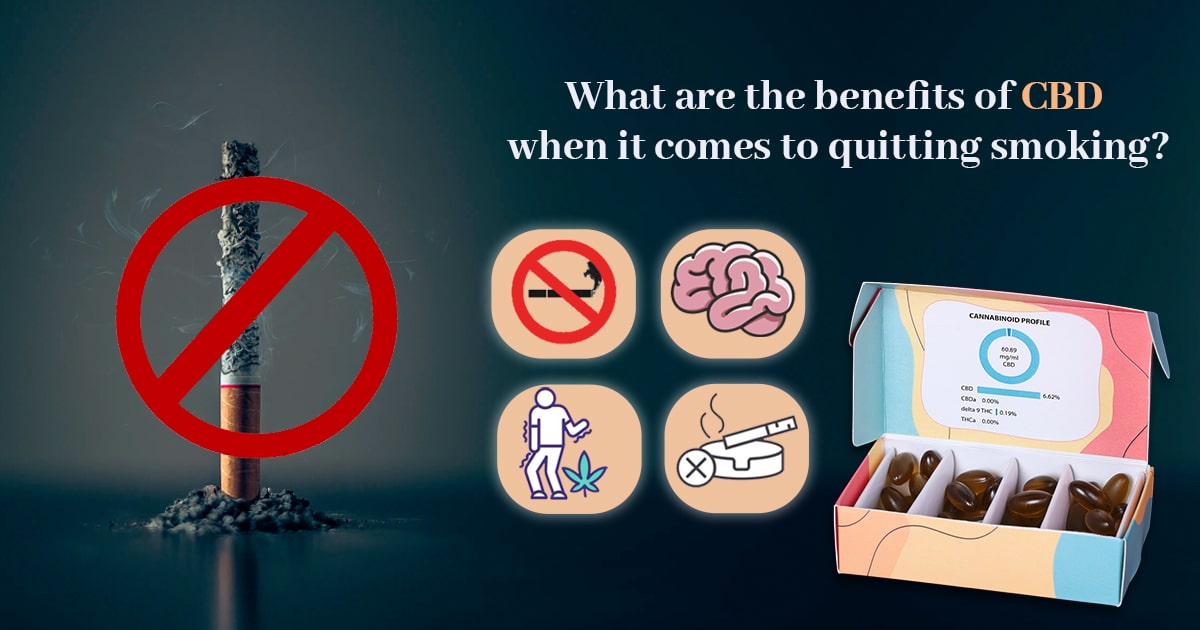
What are the benefits of CBD when it comes to quitting smoking?
CBD offers a wide range of therapeutic applications. People use it to treat a variety of illnesses and symptoms, such as pain, muscle spasms, tremors, seizures, insomnia, autoimmune diseases, neurodegeneration, and dementia.
Reduce the number of cigarettes you now smoke.
It makes it easier for your brain to ignore indications associated with smoking.
Reduce uncomfortable withdrawal symptoms
Overcome addiction
If you do decide to incorporate CBD into your smoking-quitting strategy, be careful to use products made from hemp for the best support.

Is CBD Addictive, though?
You can rest assured that CBD does not cause addiction. You won't become hooked to CBD if you switch from smoking cigarettes to taking CBD. This is assumed to be the case because, in contrast to THC, CBD has no euphoric or drug-like effects.
Conclusion
The many diverse biological processes that CBD aids in regulating are becoming more and more clear as we research it. And as a result, we learn more about how CBD might help would-be non-smokers really quit smoking. Hempstrol is one such brand that provides online medical consultation to their customers who are dealing with quitting smoking and helps you buy cbd oil online.



















